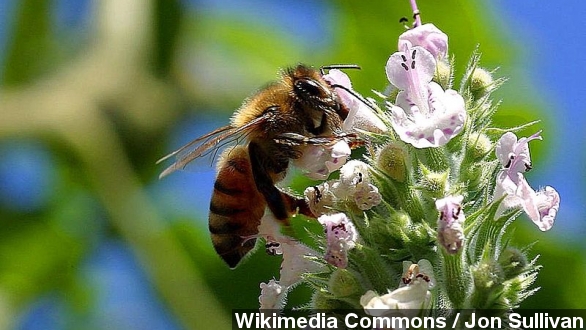A new study has found a couple of commonly used insecticides could be directly to blame for killing off tons of honeybees.
Typically, honeybees stay in their hives during the winter because of the cold weather, but the study found some insecticides can make a big difference. (Via YouTube / wranglerstar )
Researchers at the Harvard School of Public Health found two widely used insecticides are causing some honeybees to abandon their hives during the winter and die out. The study found it's even worse during colder winters.
According to The Guardian, the study found those hives affected by the insecticides lost about half of their population after honeybees abandoned the hives. The unaffected hives experienced a small change in population during the study.
So, what is it about the insecticides that causes the bees to leave?
According to the study: "This observation may suggest the impairment of honey bee neurological functions, specifically memory, cognition, or behaviour, as the results from the chronic sub-lethal neonicotinoid exposure." (Via Bulletin of Insectology)
RT notes the study highlights the danger of what's known as Colony Collapse Disorder, which scientists say has resulted in a massive decline in the world's honeybee population.
This RT article from about a year ago points out the European Union implemented a two-year ban on three different insecticides thought to be significant contributors to honeybee decline.
That ban will remain in effect for at least another year. The study's findings were published in the Bulletin of Insectology Friday.


